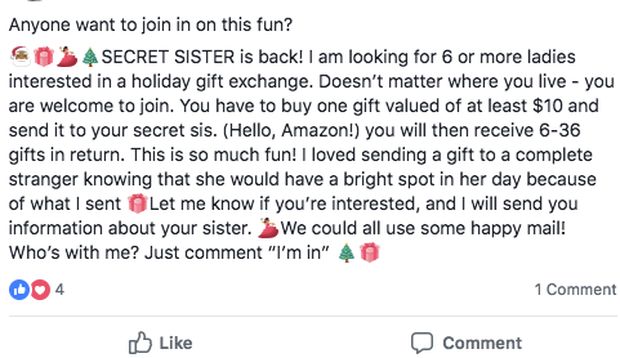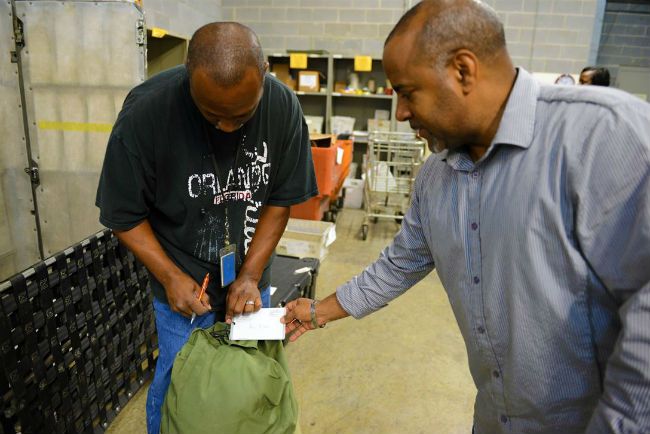Just like how Christmas music at the grocery store signals the beginning of the holiday season, there are certain trends that crop up on social media around December each year.
Photos of Christmas cookies and gift-wrapping how-to videos are innocent holiday trends.
But popular posts about "gift exchanges" and "Secret Santa groups" are not.
Experts warn that these online chain letters are actually new forms of old-fashioned pyramid schemes, and you could actually get in big trouble for joining them.
How To Spot A Scam

Each year, posts begin appearing on social media advertising "gift exchanges."
A common name for these groups is the "Secret Sisters" gift exchange.
Usually, they just ask you to send one affordable present (a $10-or-less present, a gift card, a bottle of wine, or a book) to a stranger, but promise you'll receive more gifts in return.
After mailing your gift to the first "sister" on the group's list, you're supposed to reproduce the list with your name and address in the second spot, then pass it on to your Facebook friends or relatives.
While the scam promises you can receive a huge number of gifts - like 12 or 36 - in exchange for one tiny present, almost no one who participates in these games winds up getting a single gift back.
And even if you did, collecting the goods could land you in jail.

The U.S. Postal Inspection Service has warned that these scams, which they classify as chain letters, are illegal if they "request money or other items of value and promise a substantial return to the participants."
They also pointed out that it's "mathematically impossible" for everyone who shares the post to get their full 36 gifts in return (since the number of people mailing gifts would get bigger and bigger with each share).
These schemes are actually considered gambling if you send the presents by mail, unless they're just for trading recipes and post cards (which are not considered valuables).

Taking part in a Secret Santa gift exchange by mail can also get you in trouble for mail fraud, so it's best to just avoid these schemes altogether.
Several police departments have actually warned Facebook users to "ignore" these posts if they want to keep out of trouble.
The Better Business Bureau cosigns that warning, and actually suggests you should report any chain letter posts you see on social media. On Facebook, you can report a post by clicking the three small dots in the top right

